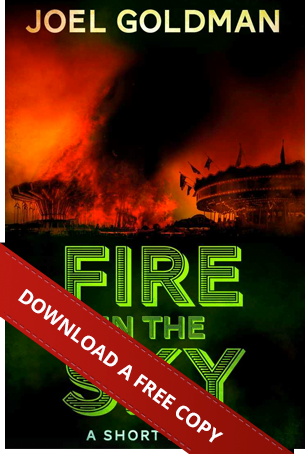Last week, I shared my tips on creating a villain readers love to hate. But what about the protagonist? The heroine whose fascinating character and dangerous situation pulls the reader’s heart and soul into her world? That hero who makes a reader grit her teeth and get knots in her stomach because she’s so worried for him?
A reader must care, and care deeply, about the protagonist – like he or she would care about a real person. This doesn’t mean your hero has to be a perfect example of moral fortitude and possess superhero-like strength to resist dark temptations. Those who watched HBO’s hit series, The Sopranos, and rooted for mob boss Tony Soprano should understand this. That Tony, he’s no altar boy, but fans still want him to win.
Taking Your Protagonist from Good to Great
- Rainmaker. A strong, worthy protagonist is a rainmaker. Your hero is the single most important force in moving your plot along. He or she should move proactively rather than reactively to the world. In other words, he should drive the story so completely that if you removed him from it, the plot would unfold quite differently (and with a far weaker impact) than before. If the story happens in much the same way without your hero, then you’ve created a character who’s just along for the ride and sits in the passenger seat of her world. This is exactly why I’m a pantster, not a plotter. My protagonist drives the direction of the story and the outcome often surprises even me.
- Interesting practically oozes from his or her pores. Your protagonist absolutely cannot be boring. No reader (save for possibly your mother) will stick around and follow a boring, cookie cutter hero through the twists and turns of your story. I don’t care how thrilling and exciting plot is; it won’t make up for a boring hero or heroine. Don’t model the main driver of your story after the average Joe or Jane. Add some depth of character and personal motivations that make him or her unique in all the world. What makes you unique as a person? Maybe on the outside you look like every other woman or man. But if all your inner drives and your psychological profile were exposed, you’d be quite different than anyone else. Expose your protagonist.
- Boom – there it is. Let your reader know who your hero is right from the get-go. This post about writing a captivating protagonist implores writers to create a moment, early on in the story, that compels readers to sympathize with the hero. Give them a taste of what makes him or her competent and capable. Drop your protagonist, with a boom, on your reader within the first five or so pages. When readers crack open one of my crime thrillers, they know who the protagonist is and what he or she is about from the start. Find out for yourself and pick up a copy of Shakedown, the first in my Jack Davis Thriller Series. Or, check out Stone Cold and follow my first female lead, Alex Stone, as she races against time to save her lover from a brutal killer – a killer she put on the street.
- Change is good. Since your protagonist is driving the story (see tip #1), he or she also changes with it. You’re not the same person today as you were yesterday. All the events of yesterday, no matter how small or how big, change you as a person. Your protagonist is no different. As your story unfolds, the hero either changes incrementally over time, or she changes significantly and immediately due to a traumatic event. Regardless of how it happens, it has to happen. Change is interesting. The status quo is boring.
- Include a single differentiating badass moment. OK, so you gave your reader a hint of your protagonist’s ability to get the job done right from the beginning (see tip #3). But the reader needs to see it again. So, as you near the end of the story, your hero needs to give the reader a moment of ass-kicking action that cranks the RPM needle to redline. Sure, this could be saving his wife and child from a revenge seeking ex-con at the last minute. But it could also be a trial attorney suddenly exposing a corrupt judge in the middle of his closing arguments during a trial.
- Answer the big four. I saved this for last because these four cardinal questions are still critical for developing your protagonist. The big four: Who is he or she? What does he or she want? What stands in the way? This could be conflicts or fears, both internal and external. What is at stake if the hero fails (what does the protagonist stand to win or lose)?
Who are your favorite protagonists from crime thrillers or mysteries? What made them compelling and interesting to you?
Image credit: Red Dragon movie, IMDb [dot] com, 2002











